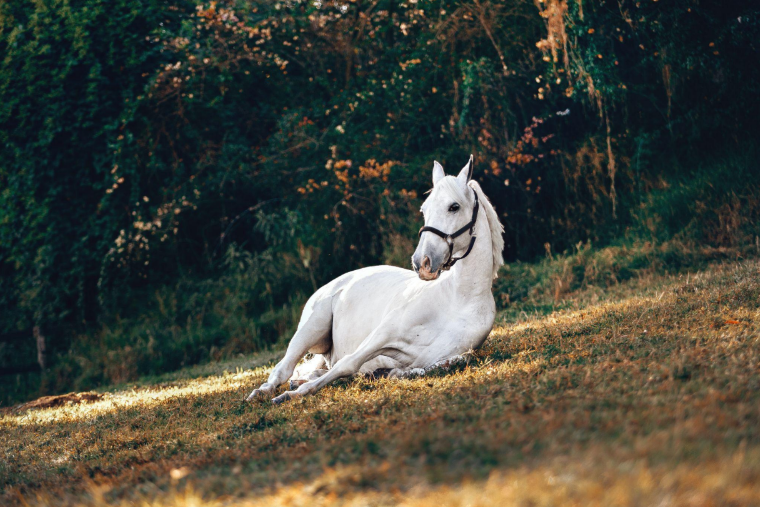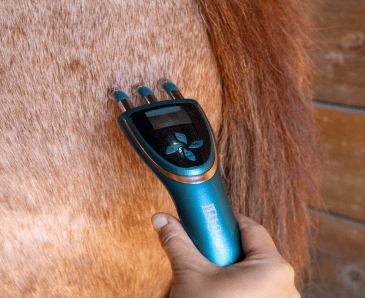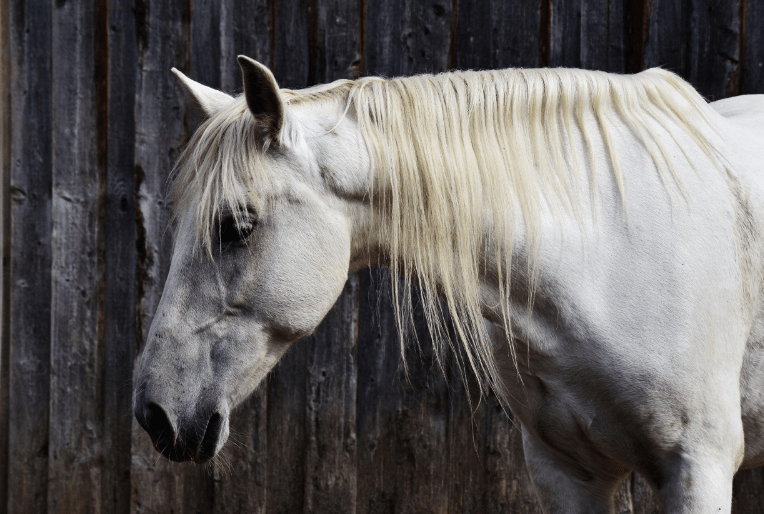
Stress management is crucial for maintaining the well-being and happiness of our equine companions. In this blog post, we will explore common stress triggers in horses, how to recognize signs of stress, and share tips and techniques for managing stress effectively. Our goal is to educate and inform horse owners and riders on how to keep their horses calmer and happier.
Understanding Common Stress Triggers in Horses
Environmental Factors
Horses can become stressed due to changes in their surroundings, loud noises, or unfamiliar situations and objects. Ensuring a consistent and safe environment can help minimize stress caused by these factors.
Social Factors
Separation anxiety, dominance issues within a herd, and inadequate socialization can all contribute to stress in horses. Providing opportunities for healthy social interactions with other horses can help alleviate these issues.
Physical Factors
Illness, injury, poor nutrition, and overexertion from training can also cause stress in horses. Regular veterinary care, proper nutrition, and tailored exercise programs can help address these physical stressors.
 Recognizing Signs of Stress in Your Horse
Recognizing Signs of Stress in Your Horse
Behavioral Signs
Aggression, irritability, pawing, pacing, and head tossing are all potential indicators of stress in horses. Monitoring your horse’s behavior can help you identify when they may be experiencing stress.
Physical Signs
Excessive sweating, rapid breathing, increased heart rate, decreased appetite, and weight loss can all signal stress in your horse. Regularly observing your horse’s physical condition can help you spot these signs early on.
Tips and Techniques for Managing Stress in Horses

Establishing a Consistent Routine
Creating a predictable and stable schedule for feeding, exercise, and grooming can provide your horse with a sense of security, reducing stress levels.
Creating a Comfortable Environment for Your Horse
Providing a proper stall size, comfortable bedding, adequate turnout time, and access to pasture can help create an environment in which your horse feels at ease. Additionally, minimizing loud noises and distractions can further reduce stress.
Encouraging Socialization
Allowing your horse to interact with other horses and gradually introducing them to new environments and situations can help alleviate stress related to social factors.
Prioritizing Proper Nutrition and Physical Care
Ensuring a balanced diet and regular veterinary check-ups can help maintain your horse’s overall health. Additionally, tailoring exercise and training programs to each horse’s individual needs can help prevent overexertion and related stress.
Utilizing Calming Techniques and Therapies for Horses
Equine massage, aromatherapy, and essential oils can all aid in reducing stress levels in horses. Pressure wraps or calming supplements may also be beneficial.
Starrider Equestrian Products for Stress Management in Horses
 Starrider Equestrian offers a range of products designed to help manage your horse’s stress. The HaloGold therapy tool combines red/infrared light, heat, vibration, and
Starrider Equestrian offers a range of products designed to help manage your horse’s stress. The HaloGold therapy tool combines red/infrared light, heat, vibration, and
magnetic therapy to promote relaxation and recovery. The Firefly Light Therapy Product can also help alleviate stress by improving circulation and reducing inflammation. Lastly, the Legend Light Therapy Pad is another excellent option for enhancing your horse’s well-being through non-invasive light therapy.
Monitoring Progress and Adjusting Strategies for Horse Stress Management

Regularly Assessing Your Horse’s Stress Levels
By observing your horse’s behavior and physical signs, you can adjust your stress management techniques as needed to ensure their continued well-being.
Seeking Professional Advice
Consulting with veterinarians, trainers, or equine therapists can provide valuable insights and guidance in creating a personalized stress management plan for your horse.
Embracing Proactive Stress Management for a Happier, Healthier Horse
Proactive stress management is essential for the overall well-being and happiness of your horse. By implementing the tips and techniques discussed in this blog post, you can help reduce stress and create a more harmonious environment for your equine companion.

